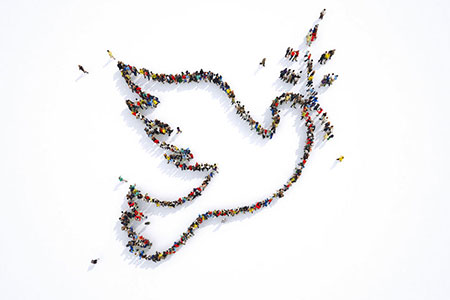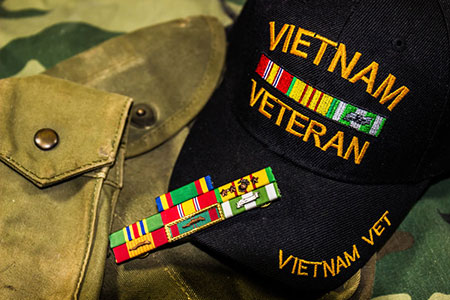selflessness
Choosing Peace Over Conflict
 There will always be moments in life when we have to choose between peace or conflict. This was the case for me just yesterday.
There will always be moments in life when we have to choose between peace or conflict. This was the case for me just yesterday.
About half an hour prior to the incident, I had taken my dogs for a walk in the countryside surrounding my home. Adjacent to the pathway we walked, there were a few men working in the field. I didn’t actually see them, but their car was parked up close by, and what I assumed was their lunch had been perched in a plastic bag in one of the olive trees.
Knowing that the curiosity of my dogs would be stirred by that bag of food, I kept a beady eye on them, particularly the two that were off-leash. Thankfully, the only thing my youngest dog appeared to be interested in was someone else’s medium-sized dog that was also in the vicinity of the workman’s feast. I’d assumed that this dog was with the workers, but on taking the same route this morning, I realized that he belongs to the actual farm there.
So, yesterday, after the walk, I was outside my house, when the worker’s car pulled up to my fence. Two young men got out and one of them asked, “Why did you allow your dogs to steal the old man’s bocadillo (a sandwich made with Spanish bread)?”
“They didn’t steal it?” I replied.
“Oh, but they did,” he said. “My friend here saw it happen!”
I took a moment and thought about how to handle this situation in the most peaceful and spiritually aware manner. It wasn’t such a big deal, but obviously the old man felt that he had been robbed.
Unconditional Love Is Heaven On Earth
 When I was a little girl, I remember going to my grandparents’ home during the summers. I couldn’t wait for the summer to arrive, to get to spend time with them. It was always magical. The months leading up to those wonderful stays were always filled with anticipation and excitement.
When I was a little girl, I remember going to my grandparents’ home during the summers. I couldn’t wait for the summer to arrive, to get to spend time with them. It was always magical. The months leading up to those wonderful stays were always filled with anticipation and excitement.
Always having something to look forward to adds to the enjoyment and contentment of life. Whether it’s an upcoming event or something we are looking forward to, such trying an adventurous activity, or reading that new book you’re excited to dive into. Books have always been for me a bit of a mental vacation, because you can relax, while going places to imaginative places in your mind.
I believe the magic and enjoyment of getting to spend time with my grandparents came from it being filled with love and attention. Thinking back now, they were the only adults, when I was younger, who gave me their full attention and truly unconditional love. They were never too busy to sit and talk with me, or share stories from their childhood, which I found very fascinating.
Not all Grandparents are alike though. Some can be all about gossip, judgment, neglect, even abuse, and not the best role models. I was lucky that on my mother’s side of the family this was not the case. My maternal grandparents had all the traits and attributes one would imagine a truly loving grandparent to have.
I have memories of being in tears when having to leave and go back home. There I just spent my days alone in my room, as my parents were often too busy with church and other social groups they were involved in. I suspect all that time I was forced to spend on my own, helped me to expand and open my mind, to tap into those deeper areas of the psyche that are often left dormant.
Active Listening – A Message From My Guides
 Your ears are working all day long. They hear thousands and thousands of sounds. Most sounds are routine, so many are dismissed as the normal cacophony of a busy life.
Your ears are working all day long. They hear thousands and thousands of sounds. Most sounds are routine, so many are dismissed as the normal cacophony of a busy life.
Without particularly focusing, you can easily differentiate between outdoor construction work, the squeal of tires on pavement, and the subtle dripping of a faucet indoors. You can also be awakened by an unusual sound while you are sound asleep.
With all this hearing going on 24/7, how often do you really make time to truly listen? Not just to miscellaneous, irrelevant sounds, or humdrum activity, but to the voices of loved ones and your own inner voice?
The key here is time. Everyone is so busy these days, that we are often thinking of something in the past, or planning hours, days or weeks in advance. Meanwhile, golden opportunities to learn more about each other can easily slip by.
People often hide their fears behind words of bravado or arrogance. When strangled by ego, they can overcompensate by sounding obnoxious or condescending. When they are feeling small or insignificant, people can try too hard to impress. Each of these attitudes can be annoying to the listener.
Learning To Trust The Universe
 Maybe you have heard someone say you need to trust in the Universe. However, this is not always easy and learning to trust really is an art and a practice, particularly if you are going through a somewhat challenging time. Nevertheless, if you really work on your ability to do this, the results can be so rewarding. It can really benefit you to put your faith in the Universe, and here is how you do it
Maybe you have heard someone say you need to trust in the Universe. However, this is not always easy and learning to trust really is an art and a practice, particularly if you are going through a somewhat challenging time. Nevertheless, if you really work on your ability to do this, the results can be so rewarding. It can really benefit you to put your faith in the Universe, and here is how you do it
Surrender To The Flow
Believe in the power of Universal Love. Yes, the Universe really is unconditionally loving and indeed does have your back. Fully taking this on board, will help you to gently surrender to the Universal flow.
Adopt a daily mantra to affirm to yourself, such as, “The Universe totally supports and loves me unconditionally.” By doing so, you will be working with the Universe, to help you attract all that what you need in order to enjoy a full and abundant life, and also place yourself in a position where you can help others do the same.
The Universe should not be seen, however, as a mechanical dispensing system that dishes out a person’s wants and needs to satisfy their every whim. However, it is perfectly okay to work with the Universe to improve your life, as well as help other people do the same.
The War Veteran’s Belongings
 It is sad when someone dies and there is no one around to pick up the pieces; no one there to take care of one’s belongings.
It is sad when someone dies and there is no one around to pick up the pieces; no one there to take care of one’s belongings.
There was an old man who lived in the same building as one of my clients. After the he had passed away, all of his belongings ended up scattered all over the communal storage area in the basement. The boxes had been ripped open and kicked around, and people just picked though his things and looted whatever they wanted, leaving the rest in a chaotic mess.
My client felt bad about this, because when she came upon this pilfered disarray, she noticed some items among his belongings indicating that he was a Vietnam war veteran, including a baseball cap with many pins on it, which he obviously had worked hard for. There were also many cards that people had sent him, thanking him for the gifts he brought back from Hawaii.
He had clearly been a good person, but those that lived in this building with him regarded him as a busy body who was always meddling in other people’s business. Only after he was no longer there did people begin to realize how many things he got accomplished and how many things he had actually taken care of on everyone’s behalf.
Maintaining A Lasting, Loving Relationship
 We’ve all seen couples who have been together for many years. How do they make it last? Any relationship just beginning will feel magical when it’s in the infatuation stage. But when that’s gone, what then?
We’ve all seen couples who have been together for many years. How do they make it last? Any relationship just beginning will feel magical when it’s in the infatuation stage. But when that’s gone, what then?
Whether it’s a friendship or a long-term partnership, keeping and maintaining a good relationship is generally a lot harder than the fairytale myth of ‘happily ever after.’ But it doesn’t have to be with the basic elements that enable relationships to stand the test of time.
Mutual Respect
Mutual respect is something everyone appreciates. Everyone loves to feel wanted, respected and loved. Avoid belittling or bullying your partner or friend, and don’t compare them negatively to yourself, or someone else. Respecting differences helps is to better see someone else’s point of view. Respect is a two-way street: don’t take too much and don’t expect someone else to give more than their fair share.
Relationships which endure are based in real love and respect. If you’ve been with someone for five years, or for 50, remind yourself why you fell in love with them in the first place. Have date nights and tell the other person that you love and respect them.
Empath Recovery From A Relationship With A Narcissist
 I wrote a previous article about the phenomenon of empaths having a dangerous attraction to, and engaging in toxic relationships with narcissists. I have since been asked how the empath can more easily break away from such a relationship with a narcissist.
I wrote a previous article about the phenomenon of empaths having a dangerous attraction to, and engaging in toxic relationships with narcissists. I have since been asked how the empath can more easily break away from such a relationship with a narcissist.
I am sorry to have to say, in my experience there is no surefire way to effortlessly sever such a connection. At least none that I am aware of. The connection between these two seemingly opposing forces is indeed a complicated one, since each of them serves the other with complimentary personality traits. Ending the connection is usually traumatic and detrimental to the empath.
Empaths seem to dive head first into ‘soul sucking.’ They are instinctively drawn to emotionally and mentally toxic relationships with narcissistic partners. It is the nature of the empath to try and heal those who are emotionally, mentally and even physically wounded. And too often the empath will commit almost unconditionally to this task.
The narcissist, however, lacks the ability to empathize with others and acts on their own selfish feelings of grandiosity and self-inflated ego. They serve only themselves and their need for attention and adoration. Their loyalty only lies where it is most beneficial to them. They are therefore capable of tremendous levels of deceit and manipulation. They will abuse the empath both mentally or physically to gain control over nearly every aspect of the empath’s life. They make the entire relationship solely about themselves and their needs.